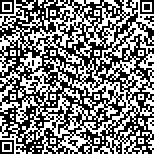| 引用本文: |
李杰留, 石智威, 钟利群, 王伟涛, 卞旭东, 蔡瑞, 卫景沛, 陈正光.基于络病理论从“通补脑络”分期辨治梅尼埃病[J].湖南中医药大学学报,2025,45(4):736-741[点击复制] |
|
| |
|
|
| 本文已被:浏览 1347次 下载 865次 |
| 基于络病理论从“通补脑络”分期辨治梅尼埃病 |
| 李杰留,石智威,钟利群,王伟涛,卞旭东,蔡瑞,卫景沛,陈正光 |
| (北京中医药大学第一临床医学院, 北京 100029;北京中医药大学东直门医院脑病科, 北京 100700;河南中医药大学第一附属医院脑病科, 河南 郑州 450000;北京中医药大学东直门医院放射科, 北京 100700) |
| 摘要: |
| 梅尼埃病(MD)是常见的内耳眩晕性疾病,为中医优势病种之一。本文围绕络病理论,探讨其在MD分期辨治中的应用。在MD急性发作期以风火上扰、脑络绌急,痰浊上蒙、脑络瘀阻二证为主;治疗重在以通为用,通脑络之绌急、瘀阻,临床多以天麻钩藤饮、芍药甘草汤、泽泻汤、二陈汤等处之。慢性缓解期以肝脾不调、脑络郁滞,肝肾阴虚、脑络虚滞,脾肾阳虚、脑络失荣三证为主;治疗重在以补为要,补脑络之虚滞、失荣,临床多以痛泻药方、左归丸、真武汤、苓桂术甘汤等处之。基于络病理论的分期辨治方法,为MD的中医治疗提供新的思路与方案,有助于提高临床疗效,改善患者生活质量。 |
| 关键词: 梅尼埃病 络病理论 通补脑络 病因病机 辨证论治 理论探讨 |
| DOI:10.3969/j.issn.1674-070X.2025.04.023 |
| 投稿时间:2024-11-19 |
| 基金项目:国家重点研发计划课题(2018YFC1704106);北京市自然科学基金面上项目(7232291);北京市中医药管理局中医药质量控制管理项目(BJZYY202411);北京中医药大学揭榜挂帅重点项目(2024-JYB-JBZD-002);北京中医药大学新教师启动基金项目(2020-JYB-XJSJJ-043)。 |
|
| Staged differentiation and treatment of Ménière's disease through "unblocking and tonifying brain collaterals" based on collateral disease theory |
| LI Jieliu, SHI Zhiwei, ZHONG Liqun, WANG Weitao, BIAN Xudong, CAI Rui, WEI Jingpei, CHEN Zhengguang |
| (The First Clinical School, Beijing University of Chinese Medicine, Beijing 100029, China;Department of Brain Diseases, Dongzhimen Hospital, Beijing University of Chinese Medicine, Beijing 100700, China;Department of Brain Diseases, The First Affiliated Hospital of Henan University of Chinese Medicine, Zhengzhou, Henan 450000, China;Department of Radiology, Dongzhimen Hospital, Beijing University of Chinese Medicine, Beijing 100700, China) |
| Abstract: |
| Ménière's disease (MD) is a common inner ear disorder characterized by vertigo and is recognized as one of the diseases for which Chinese medicine has therapeutic advantages. Focused on the collateral disease theory, this article has explored its application in the staged differentiation and treatment of MD. During the acute attack phase of MD, the primary patterns are wind-fire disturbing upward with constriction of brain collaterals, and phlegm-turbidity obscuring upward with blood stasis in brain collaterals. The treatment emphasizes unblocking, targeting the constriction and blood stasis in brain collaterals, and clinically, formulas such as Tianma Gouteng Drink, Shaoyao Gancao Decoction, Zexie Decoction, and Erchen Decoction are commonly used. During the chronic remission phase, the main patterns are liver-spleen disharmony with qi stagnation in brain collaterals, liver-kidney yin deficiency with deficiency and stagnation in brain collaterals, and spleen-kidney yang deficiency with malnutrition of brain collaterals. The treatment focuses on tonification, addressing the deficiency and stagnation or malnutrition in brain collaterals, and clinically, formulas such as Tongxie Yao Formula, Zuogui Pill, Zhenwu Decoction, and Linggui Zhugan Decoction are commonly prescribed. The staged differentiation and treatment approach based on the collateral disease theory provides new insights and protocols for the Chinese medicine treatment of MD, helping to improve clinical efficacy and enhance quality of life of patients. |
| Key words: Ménière's disease collateral disease theory unblocking and tonifying brain collaterals etiology and pathogenesis pattern differentiation and treatment theoretical exploration |
|

二维码(扫一下试试看!) |
|
|
|
|




